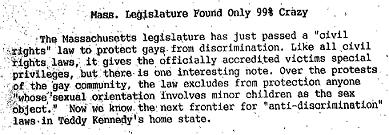Phillip Kayser is pastor of the Dominion Covenant Church in Omaha, Nebraska, just across the border from Iowa. Yesterday, Rev. Kayser endorsed Ron Paul for President. The Paul campaign clearly welcomed the endorsement calling Kayser an “eminent pastor.” Ron Paul’s Iowa Chairman, Drew Ivers, commended Kayser’s view of Paul’s approach to government, saying
“We welcome Rev. Kayser’s endorsement and the enlightening statements he makes on how Ron Paul’s approach to government is consistent with Christian beliefs. We’re thankful for the thoughtfulness with which he makes his endorsement and hope his endorsement and others like it make a strong top-three showing in the caucus more likely,” said Ron Paul 2012 Iowa Chairman Drew Ivers.
Dr. Kayser has degrees in education, theology and philosophy/ethics. He is the author of over 40 books and booklets. The name of one organization that he founded describes well his ministry: Biblical Blueprints. His passion is to see the comprehensive blueprints of the Scriptures applied to science, civil government, education, art, history, economics, business, and every area of life.
For his part, Kayser said he had some disagreements with Paul but endorsed Paul due to Paul’s views on limited government, non-intervention abroad and civics. Kayser said Paul’s view of civics is “far closer to Biblical civics than any of the other candidate’s…”
Kayser’s endorsement and the Paul campaign’s response (“…how Ron Paul’s approach to government is consistent with Christian beliefs”) is of note because what Kayser believes about government. It appears that Kayser is a Christian reconstructionist (see this post about their views) who believes that the penalties associated with Mosaic law should be implemented today. Also, known as theonomy, the adherents generally believe biblical rules should be promoted by Christians in politics and implemented by legislation.
Kayser’s work is promoted on the website Theonomy Resources which is run by Stephen Halbrook. I wrote about Halbrook’s book on biblical law here and noted that he promoted the idea that homosexuality, adultery, idolatry and rebellion in children should be considered capital offenses today (see What would dominionists do with gays? Part 3).
In his own writing, Kayser has similar views. In defense of the death penalty, he writes:
Whereas Hebrews 2:2 gives a blanket endorsement of all Old Testament penology as justice, the rest of the New Testament gives specifics. It teaches that homosexuals who come out of the closet are “worthy of death” (Rom. 1:32). It teaches that juvenile delinquents who abuse their parents can in certain circumstances “be put to death” (Mt. 15:3-9) and that rejection of this provision was to “transgress the commandment of God because of your tradition” (v. 3).
Kayser nuances his teaching somewhat by saying the death penalty is not required by the Old Testament, but instead may be implemented by the state if parents press charges.
Would the church of today receive the same scathing denunciation because we do not want the state to enforce this law? In America we have juvenile delinquents who threaten their parents, abuse their parents and keep their parents in constant fear. There should be some provision where this could be stopped. Keep in mind that in the Old Testament the parents couldn’t put their children to death, only the state could. On the other hand, the state couldn’t put them to death unless the parents testified against them. And there are many other checks and balances in Biblical jurisprudence that are outlined in Appendix A. But Christ gives no indication that this commandment has been annulled. Instead, he reproves those who would seek to annul it.
Regarding gays, Kayser’s vision for a nation being restored to biblical law allows for a variety of responses:
For example, in a society that was being converted, homosexuals could continue to be converted as they were in the church of Corinth. Even after a society implemented Biblical law and made homosexuality a crime, there are many checks and balances that would be in place. (See Appendix A page 40 for specifics.) The civil government could not round them up. Only those who were prosecuted by citizens could be punished, and the punishment could take a number of forms, including death. This would have a tendency of driving homosexuals back into their closets. (p. 24)
I don’t know if Ron Paul believes this way or not, but Rev. Kayser and the Paul campaign certainly seem to endorse each other on their views of government. I think Rep. Paul should be asked if he would support the right of a state to implement such a system. If he is consistent with his past writings and current endorsers, I don’t know on what basis he would believe that a federal court could overturn laws recriminalizing homosexuality.
Adultery is also listed by Kayser as a potential capital crime. Um, Newt…
UPDATE: Phillip Kayser’s endorsement has been scrubbed from Ron Paul’s website.
Related:
What Does Ron Paul Really Believe About Gays?
What do Dan Savage and AFTAH’s Mike Heath have in common?
